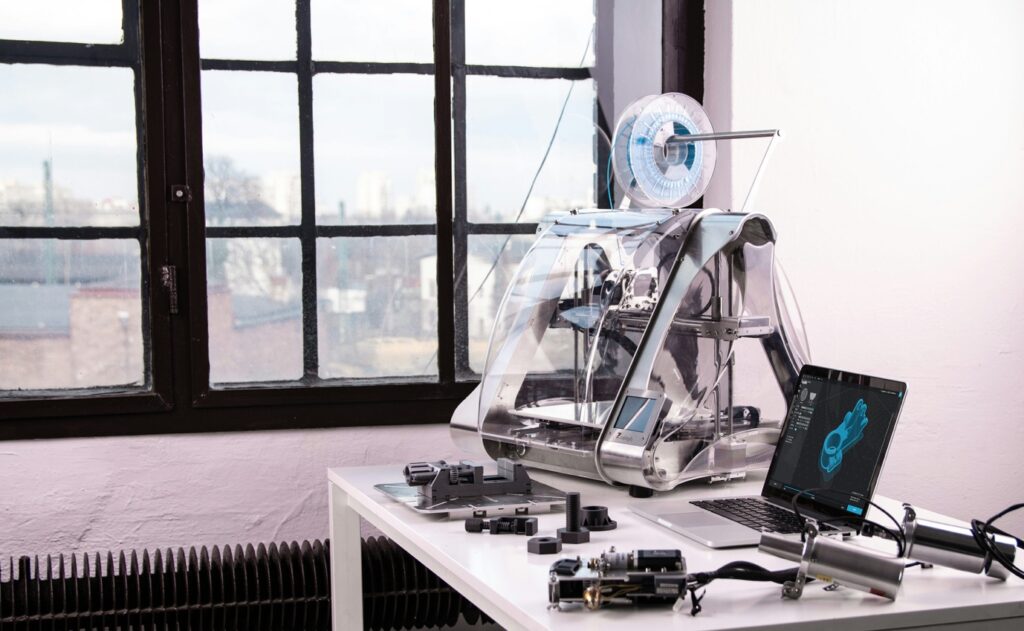Selecting the appropriate material for custom machined parts is a critical decision that can significantly impact the performance, durability, and cost of the final product. With a myriad of materials available, custom fabricators and CNC machining companies must carefully consider various factors to ensure the chosen material meets the specific requirements of their project. This blog delves into the key considerations and material options for machining companies and custom fabricators.
Understanding Material Properties
The properties of a material play a fundamental role in determining its suitability for a particular application. Custom fabricators must assess factors such as strength, hardness, ductility, thermal stability, and corrosion resistance. Understanding these properties helps machining companies choose materials that will perform well under the intended operating conditions.
For instance, in applications where high strength and durability are paramount, materials like stainless steel or titanium might be ideal. Conversely, for parts requiring excellent thermal conductivity, copper or aluminum alloys could be more appropriate. CNC machine companies must balance these properties to achieve the desired performance and longevity of the custom machined parts.
Metals for Custom Machined Parts
Metals are a popular choice for custom machined parts due to their diverse properties and versatility. CNC machining companies often work with a range of metals, each offering unique advantages.
Aluminum Alloys
Aluminum alloys are widely used in custom fabrication due to their lightweight, high strength-to-weight ratio, and excellent machinability. These alloys are corrosion-resistant and possess good thermal and electrical conductivity, making them suitable for applications in the automotive, aerospace, and electronics industries. Custom fabricator companies often choose aluminum for components that require both strength and lightness.
Stainless Steel
Stainless steel is known for its exceptional strength, corrosion resistance, and durability. It is a preferred material for custom machined parts in industries such as medical, food processing, and chemical manufacturing. CNC machining companies value stainless steel for its ability to withstand harsh environments and maintain its properties over a wide range of temperatures.
Titanium
Titanium offers an impressive combination of high strength, low density, and excellent corrosion resistance. It is particularly favored in aerospace, medical, and marine applications where performance under extreme conditions is crucial. Custom fabricators appreciate titanium’s biocompatibility, making it suitable for medical implants and devices.
Plastics in Custom Fabrication
Plastics are another essential category of materials for custom machined parts, offering unique advantages over metals. They are lightweight, cost-effective, and possess excellent chemical resistance. Machining companies utilize various types of plastics depending on the specific requirements of the part.
Acetal (Delrin)
Acetal, commonly known by the brand name Delrin, is a high-strength, low-friction plastic with excellent dimensional stability. It is ideal for precision parts that require tight tolerances and smooth surface finishes. CNC machine companies often use acetal for gears, bearings, and electrical components.
Polycarbonate
Polycarbonate is a tough, transparent plastic with high impact resistance and optical clarity. It is widely used in applications where durability and transparency are important, such as safety shields, optical lenses, and medical devices. Custom fabricators value polycarbonate for its ability to be easily machined and molded.
PTFE (Teflon)
PTFE, known by the brand name Teflon, is renowned for its exceptional chemical resistance and low friction properties. It is commonly used in applications requiring non-stick surfaces, such as gaskets, seals, and bearing components. CNC machining companies rely on PTFE for parts that must operate in chemically aggressive environments.
Composites and Advanced Materials
The use of composite materials and advanced alloys is growing in custom fabrication, driven by the need for high-performance parts with specific properties. These materials combine the strengths of multiple substances to achieve superior characteristics.
Carbon Fiber Composites
Carbon fiber composites are known for their outstanding strength-to-weight ratio and rigidity. They are extensively used in aerospace, automotive, and sporting goods industries. Custom fabricators utilize carbon fiber for applications where lightweight and high strength are critical, such as structural components and high-performance equipment.
Inconel
Inconel is a family of nickel-chromium-based superalloys designed for extreme environments. It offers excellent resistance to oxidation, corrosion, and high temperatures. CNC machining companies choose Inconel for parts used in aerospace, gas turbines, and chemical processing, where other materials would fail.
Cost Considerations
While material properties are paramount, cost is also a crucial factor in material selection. Custom fabricator companies must balance performance requirements with budget constraints to deliver cost-effective solutions. High-performance materials like titanium and carbon fiber composites can be expensive, so it is essential to assess whether their benefits justify the additional cost.
Machining companies should also consider the machinability of the material, as more challenging materials may increase production time and costs. Working closely with clients to understand their needs and constraints allows custom fabricators to recommend the most suitable material that meets both performance and budget requirements.
Industry-Specific Requirements
Different industries have unique demands that influence material selection. Custom fabricator companies must be aware of these requirements to choose materials that comply with industry standards and regulations. For example, medical device manufacturing requires biocompatible materials like stainless steel and titanium, while the aerospace industry demands lightweight and high-strength materials such as aluminum and carbon fiber composites.
CNC machining companies should stay informed about industry trends and advancements in material science to offer the best solutions to their clients. By understanding the specific needs of each industry, custom fabricators can ensure that their machined parts meet the highest standards of quality and performance.
The selection of the right material is a critical step in the custom fabrication process. By considering material properties, cost, and industry-specific requirements, CNC machining companies and custom fabricators can deliver high-quality, precision-machined parts that meet the diverse needs of their clients. This careful selection process ensures that the final product performs optimally in its intended application, driving success for both the fabricators and their customers.

